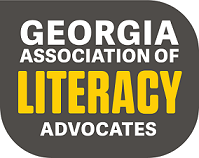Fostering Social-Emotional Learning in Children's Books: An Analysis of Content and Quality
DOI:
https://doi.org/10.56887/galiteracy.191Keywords:
children's literature, social development, social relationshipsAbstract
Social-emotional learning (SEL) is increasingly recognized as essential to children’s development, equipping them with tools for emotional regulation, positive relationships, and responsible decision-making. This quantitative study explores how SEL is represented in contemporary children’s literature, drawing on the Collaborative for Academic, Social, and Emotional Learning (CASEL) framework to analyze the frequency and quality of SEL themes across five core competencies: self-awareness, self-management, social awareness, relationship skills, and responsible decision-making. The study focuses on two primary research questions: (1) Which SEL themes appear most frequently in children’s books based on rubric scores? and (2) How do literary and artistic rubric ratings relate to the effectiveness of SEL content? The study differentiates between the presence of SEL themes and the quality of their delivery. Findings highlight how children’s books can serve as powerful tools for modeling empathy and social understanding, offering valuable insights for educators, parents, and publishers seeking to support holistic child development through literature.



